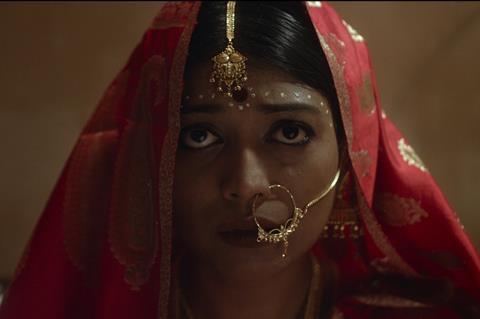
The Jio MAMI Mumbai Film Festival has unveiled a South Asia-focused revamp for its first in-person event since 2019, set to run October 27 to November 5.
The festival has dropped its international and India Gold competitions and will launch its first South Asia competitive section as part of a new approach to become a hub for cinema and talent from the region and diaspora.
The 14 films in the South Asia Competition are from first and second-time filmmakers from India, Bangladesh, Bhutan and Nepal as well as diaspora filmmakers from the UK and Germany, and aims to showcase rising talent. They will compete for the Golden Gateway and Silver Gateway awards, previously awarded in the international competition.
Scroll down for full list of competition titles
Four world premieres in the competition include A House Named Shahana by UK-based Bangladeshi writer/director Leesa Gazi, who previously made documentary Rising Silence; and Dilli Dark by India’s Dibakar Das Roy, which was selected by India’s Film Bazaar Recommends strand last year.
Also set to world premiere is Sumanth Bhat’s Mithya, produced under the banner of Rakshit Shetty’s Paramvah Pictures, and Fazil Razak’s The Sentence. Both features are from India.
Further notable titles in the competition include Jaishankar Aryar’s Shivamma, which won the top prize at Busan International Film Festival last year; Pawo Choyning Dorji’s The Monk And The Gun, which has been submitted to the Oscars by Bhutan; and Fidel Devkota’s The Red Suitcase, which premiered at Venice.
More than 250 features and shorts will be shown over the 10-day festival, which is organised by the Mumbai Academy of Moving Image (MAMI). Screenings will take place across 20 screens in eight venues across Mumbai, with the opening taking place at the festival’s main hub – the Nita Mukesh Ambani Cultural Centre (NMACC). The opening and closing films have yet to be revealed.
The festival’s artistic director, Deepti DCunha, said the new focus on South Asia aimed to “build an ecosystem for new cinematic voices from South Asia and the South Asian Diaspora”.
“This commitment extends beyond film screenings, aiming to facilitate the exchange of ideas, collaborations, and business opportunities while bringing the best of world cinema to Mumbai,” she added.
This new focus will also be extended to non-competitive section Focus South Asia, comprising 22 features and 24 shorts. Titles include All India Rank by Varun Grover, which closed International Film Festival Rotterdam earlier this year; and Karan Tejpal’s Stolen, which premiered at Venice.
Also introduced this year is Icons South Asia, featuring standout films by talent from the region and includes Vasudhaiva Kutumbakam by Anand Patwardhan, Indi(r)a’s Emergency by Vikramaditya Motwane, Paradise by Prasanna Vithanage, Something Like An Autobiography by Mostofa Sarwar Farooki.
The Gala Premier South Asia strand will comprise some of the most ambitious Indian films of the year such as Kennedy by Anurag Kashyap, Sharmajee ki Beti by Tahira Kashyap, Everybody Loves Sohrab Handa by Rajat Kapoor.
Returning sections include Marathi Talkies, in which Jio MAMI spotlights contemporary voices from its home region (Maharashtra), and shorts strand Dimensions Mumbai.
Films from outside the region will continue to have a platform at the festival, with the World Cinema strand including 99 titles from more than 35 countries such as Cannes’ Palme d’Or winner Anatomy Of A Fall by Justine Triet, The Daughters Of Fire by Pedro Costa, Monster by Hirokazu Kore-eda, In Our Day by Hong Sang-soo, Strange Way Of Life by Pedro Almodóvar, The Old Oak by Ken Loach, Fallen Leaves by Aki Kaurismäki, La Chimera by Alice Rohrwacher, The Beast by Bertrand Bonello, Maestro by Bradley Cooper.
The festival’s head of international programming, Anu Rangchar, said its selection took in titles that audiences “wouldn’t be able to otherwise watch in India, as the probability of them independently releasing here is fairly low”.
Further strands include an After Dark section curated by BIFAN’s Jongsuk Thomas Nam and a Recap strand, revisiting titles selected by the festival in 2020 and 2022, which took place online.
At a press conference to announce the lineup today, Jio MAMI festival director Anupama Chopra said: “We hope to emerge as a melting pot of talent from across the world while spotlighting and creating more opportunities for South Asian films and filmmakers.”
South Asia Competition
Against The Tide (India-Fr)
Dir Sarvnik Kaur
Agra (India-Fr)
Dir Kanu Behl
Bahadur - The Brave (India)
Dir Diwa Shah
A House Named Shahana (Barir Naam Shahana) (Bang-UK)
Dir Leesa Gazi
Dilli Dark (India)
Dir Dibakar Das Roy
Guras (India)
Dir Saurav Rai
Which Colour? (Kayo Kayo Colour?) (India)
Dir Shahrukhkhan Chavada
Mithya (India)
Dir Sumanth Bhat
Rapture (Rimdogittanga) (India-China-Neth-Qatar-Switz)
Dir Dominic Sangma
Shivamma (India)
Dir Jaishankar Aryar
A Match (Sthal) (India)
Dir Jayant Somalkar
The Sentence (Thadavu) (India)
Dir Fazil Razak
The Monk And The Gun (Bhutan-Fr-US-Tai)
Dir Pawo Choyning Dorji
The Red Suitcase (Nepal-Sri Lanka)
Dir Fidel Devkota

























No comments yet